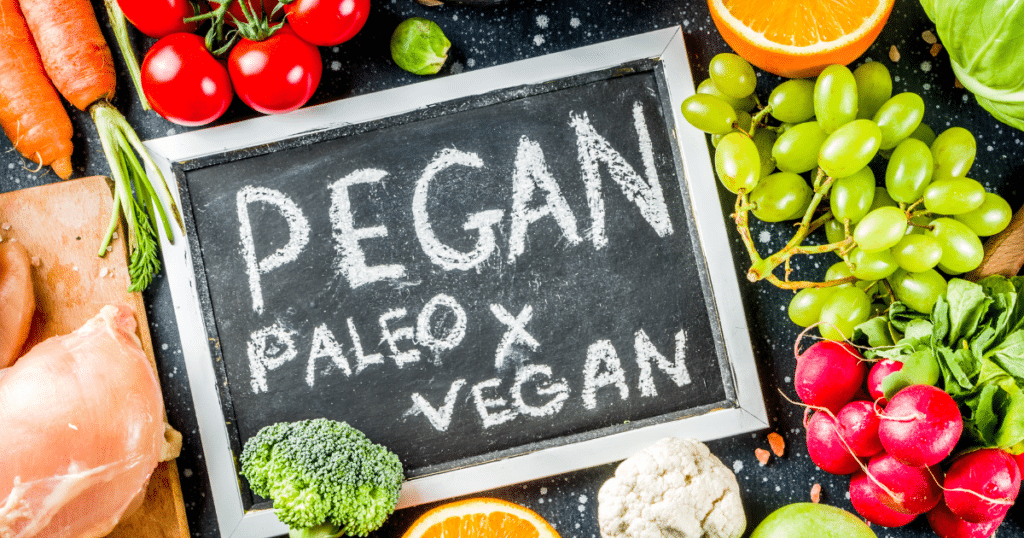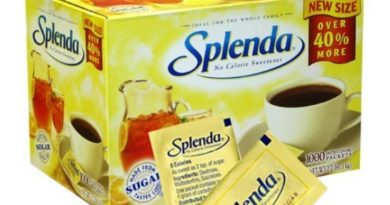What is the Pegan Diet & Should You Consider Trying It?
With so many diets out there, it can easily become overwhelming trying to decide which one is right for you. Well, we’re throwing another trending diet into the mix: the pegan diet.
In this article, we are going to take a deep dive into the pegan diet to better understand what it is, the foods associated with the diet, the health benefits, who this diet is ideal for, and some of the drawbacks.
Disclaimer: This article is for informational purposes only and is not meant to treat or diagnose any condition. It is recommended that you speak with your doctor before changing or altering your nutrition plan or implementing the pegan diet into your lifestyle.
Table of contents
What is the Pegan Diet?
The pegan diet is a dietary approach that combines elements of the paleo diet and the vegan diet. It was popularized by Dr. Mark Hyman, a functional medicine doctor, and is based on the idea that the healthiest diet is one that is rich in whole, unprocessed foods and minimizes the consumption of processed foods, added sugars, and unhealthy fats.
One of the main principles of the pegan diet is the emphasis on plant-based foods. This includes a wide variety of vegetables, fruits, nuts, seeds, and legumes. These foods are rich in nutrients, fiber, and antioxidants, which can help support a healthy immune system, improve digestion, and reduce the risk of chronic diseases such as heart disease and type 2 diabetes.
Unlike the vegan diet, the pegan diet includes small amounts of animal protein, such as eggs, poultry, and fish. These animal products are typically consumed in smaller quantities than on a traditional diet and are chosen for their high-quality, sustainably-raised sources.
In addition to plant-based and animal-based foods, the pegan diet also encourages the consumption of healthy fats, such as olive oil, avocado, avocado oil, and nuts. These fats can help support brain health, improve energy levels, and reduce inflammation in the body.
Related Article: Are Plant-Based Omega-3s the Future of Healthy Fats?
One of the key differences between the pegan diet and other plant-based diets is the emphasis on incorporating a variety of nutrient-dense foods. This includes nutrient-rich vegetables, such as leafy greens, cruciferous vegetables, root vegetables, and antioxidant-rich fruits, such as berries and citrus fruits.

Another critical aspect of the pegan diet is minimizing processed and refined foods. This includes processed grains, added sugars, and unhealthy fats, such as trans fats and hydrogenated oils. These foods have been linked to several health issues, including weight gain, inflammation, and an increased risk of chronic diseases.
One of the main benefits of the pegan diet is its focus on whole, unprocessed foods. These types of foods are generally more nutrient-dense and have a lower environmental impact than processed foods. By focusing on whole, unprocessed foods, the pegan diet can help support overall health and well-being.
Another potential concern is the cost of sustainably-raised animal protein sources. These products can be more expensive than conventionally-raised animal protein, which may make the diet less accessible for some people.
Related Article: What’s the Proper Protein Intake Per Meal?
Overall, the pegan diet is a dietary approach that combines elements of the paleo and vegan diets and emphasizes the consumption of whole, unprocessed foods. While it may have some potential benefits, it is important to carefully consider the potential drawbacks and ensure that the diet is balanced and nutrient-rich to avoid potential deficiencies. As with any dietary approach, it is always a good idea to consult with a healthcare provider or registered dietitian before making any significant changes to your diet.
What Foods Can You Eat While Following the Pegan Diet?

As with most diets, there are certain foods that you should focus on and avoid. Here is a list of foods that are typically allowed on the pegan diet:
- Vegetables: a wide variety of vegetables, including leafy greens, cruciferous vegetables, root vegetables, and others
- Fruits: a variety of fruits, including berries, citrus fruits, and others
- Nuts and seeds: nuts such as almonds, walnuts, and hazelnuts, as well as seeds such as chia seeds, flax seeds, and pumpkin seeds
- Legumes: beans, lentils, and other legumes
- Animal protein: small amounts of high-quality, sustainably-raised animal protein sources, such as eggs, poultry, and fish
- Healthy fats: olive oil, avocado, and other healthy fats
It is important to note that the pegan diet emphasizes the consumption of whole, unprocessed foods and minimizes the consumption of processed and refined foods. This means that foods such as processed grains, added sugars, and unhealthy fats, such as trans fats and hydrogenated oils, are generally not allowed on the diet.
What Are the Benefits of the Pegan Diet?
The pegan diet, when followed correctly and consistently, may offer several potential health benefits. Here are some potential benefits of implementing the pegan diet into your lifestyle:
1. Improve digestion
The pegan diet is high in fiber, which can help support a healthy digestive system and reduce the risk of constipation and other digestive issues.
2. Increase weight loss
By focusing on whole, unprocessed foods and minimizing the consumption of processed and refined foods, the pegan diet may help with weight loss.
3. Reduce the risk of chronic diseases
The pegan diet is rich in nutrients, including antioxidants and healthy fats, which may help reduce the risk of chronic diseases such as heart disease, type 2 diabetes, and certain cancers.
4. Boost energy levels
The pegan diet is rich in nutrients that can support energy production, such as healthy fats and complex carbohydrates. This may help improve energy levels and reduce fatigue.
5. Enhance mental health
The pegan diet is rich in nutrients that support brain health, such as healthy fats and antioxidants. This may help improve mood and reduce the risk of mental health conditions such as depression and anxiety.
Related Article: 10 Brain Foods You Should Eat to Improve Your Focus
It is important to note that the above potential benefits are based on the idea that the pegan diet is balanced and nutrient-rich to ensure your micronutrient needs are met, and you don’t have any deficiencies.
That being said, it’s always a good idea to take a daily multivitamin to ensure you are getting in sufficient amounts of micronutrients to promote overall health and bodily functions.
If you are looking for a quality multivitamin, I recommend this one.
Who Should Try the Pegan Diet?

The pegan diet may be suitable for people who are looking to incorporate more whole, unprocessed foods into their diet and reduce their intake of processed and refined foods. It may also appeal to individuals interested in a dietary approach that combines elements of both the paleo and vegan diets.
Related Article: Multivitamin Supplements: Nutrition Alone Doesn’t Cut It
However, it is important to note that the pegan diet may not be suitable for everyone.
In general, the pegan diet may be most suitable for people who:
- Are interested in a dietary approach that emphasizes whole, unprocessed foods
- Want to reduce their intake of processed and refined foods
- Are interested in a diet that combines elements of the paleo and vegan diets
- Are willing to pay more for sustainably-raised animal protein sources
It is also critical to remember that the pegan diet may be more challenging for people who are vegetarian or vegan and do not consume animal protein. In these cases, it may be necessary to carefully plan meals to ensure that all essential nutrients are being obtained from other sources.
What Are the Drawbacks of This Specific Diet?

There are also several potential drawbacks to the pegan diet that should be noted. Not any one diet is supreme and considered “the best.” Therefore, we need to look at the pros and cons of everything.
Related Article: Is the Fasting Mimicking Diet Effective for Weight Loss?
One of the main concerns with the pegan diet is the potential for nutrient deficiencies, particularly if the diet is not properly balanced. For example, getting enough protein, iron, and other essential nutrients on a pegan diet may be challenging if animal protein is not consumed in sufficient quantities.
Again, these deficiencies can be mitigated through the use of a quality multivitamin supplement.


*Disclosure: This article may contain affiliate links or ads, which means we earn a small commission at no extra cost to you if you make a purchase through these links. These commissions help support the operation and maintenance of our website, allowing us to continue producing free valuable content. Your support is genuinely appreciated, whether you choose to use our links or not. Thank you for being a part of our community and enjoying our content.
PLEASE CONSIDER SHARING THIS ON YOUR SOCIAL MEDIA TO HELP OTHERS LEARN MORE ABOUT THIS TOPIC.





